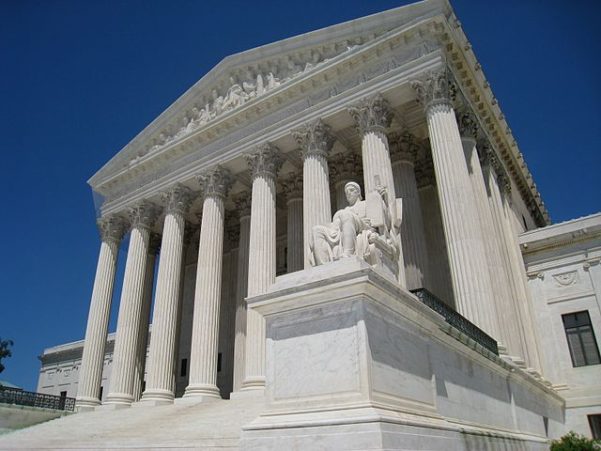Obviously, the possibility that Roe v Wade could soon be overturned is currently getting all the attention, but there was a nice win for religious freedom at the court yesterday that should not be overlooked.
For 12 years the city of Boston has rotated flags on an 83-foot pole outside City Hall for every group under the sun as part of its efforts to promote ‘diversity and civic engagement’. That was all fine until 2017 when a group – Camp Constitution – applied to hoist a “Christian flag” and city officials said it could not be flown. They said that the blue and white flag with a red Latin cross in the top left corner would violate the principle of the separation of Church and State.
Camp Constitution initiated legal action under a fundamental First Amendment question of who is conveying a message when a third-party group’s flag flies on a government flagpole – the group or the government? Camp Constitution lost their case in the U.S. lower courts including the Court of Appeals. Determined about the right of their case, they appealed to the U.S. Supreme Court which heard the case in January.
It was argued that the City of Boston discriminated against the one Christian applicant, while “permitting a wide range of secular expression with which the government agrees” in the 284 previous applications. The City chose to attack Camp Constitution and singled them out because of their religious beliefs.
That all changed yesterday when the Supreme Court ruled unanimously that the City of Boston violated the group’s First Amendment rights. “We conclude that Boston’s flag-raising programme does not express government speech,” Justice Stephen Breyer wrote for the court. “As a result, the city’s refusal to let (the group) fly their flag based on its religious viewpoint violated the Free Speech Clause of the First Amendment.”
“This case is so much more significant than a flag,” said a spokesperson for Camp Constitution. “Boston openly discriminated against viewpoints it disfavoured when it excluded a Christian flag.”
The unanimous decision of the court was the latest in a series of rulings favouring the protection of religious groups, though in this case the issue was more about the First Amendment’s protection of free speech than its promise that Americans may practice their religion without government interference. The Supreme Court has looked favourably on claims of religious freedom in the past. In 2019, it ruled that a Latin cross on government property outside Washington, D.C. did not have to be moved in the name of church-state separation. In 2014, it upheld the practice of offering prayers to open government meetings, even if those prayers were overwhelmingly Christian.
“We are carefully reviewing the court’s decision and its recognition of city governments’ authority to operate similar programmes,” said Ricardo Patrón, a spokesman for the city. “As we consider next steps, we will ensure that future City of Boston programmes are aligned with this decision.”
This case illustrates how Christian groups have to remain vigilant and to fight to protect their freedoms, especially fundamental religious freedom, which are under sustained attack from the left.
















